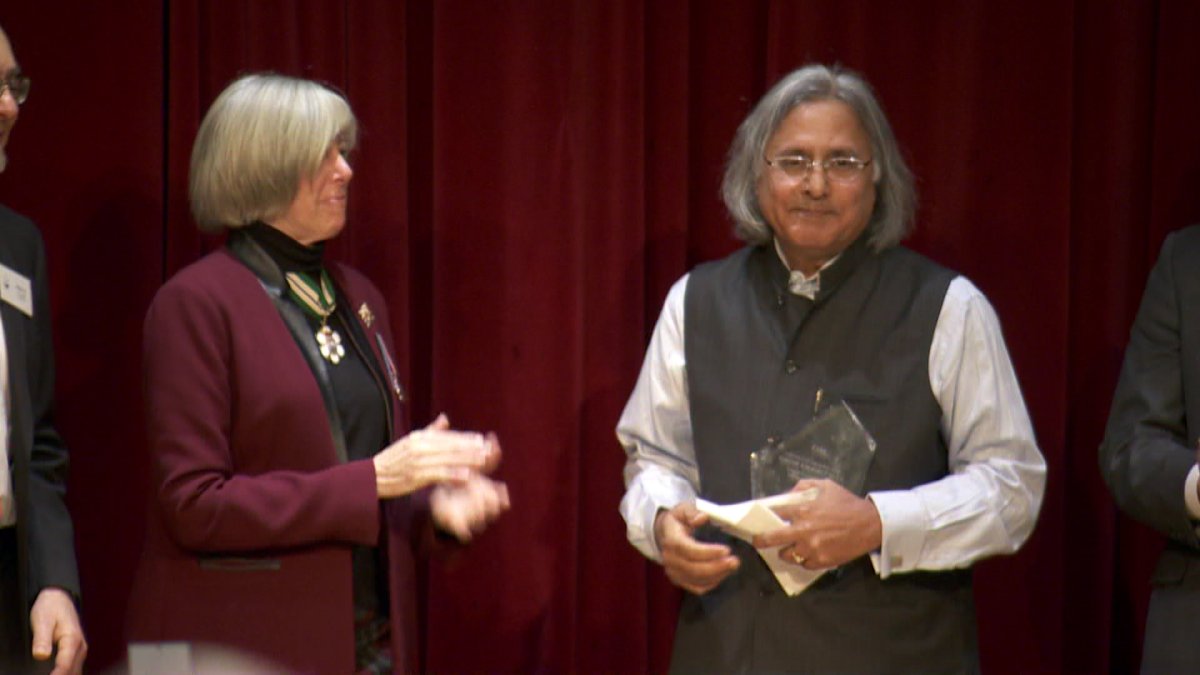Former B.C. premier Ujjal Dosanjh is urging British Columbians to vote against a change to proportional representation.

The referendum on the province’s electoral system is set to take place in the fall.
“Proportional representation is complicated and confusing. It creates perpetual minority governments, ongoing instability and constant background deals that exclude voters. It gives more power to political parties by taking it away from the voters,” he said.
WATCH HERE: Fringe parties will be result of proportional representation, says former BC Premier Ujjal Dosanjh

Dosanjh was the BC NDP leader when the party received 21.5 per cent of the vote but won just two out of 79 seats in 2001.
Even so, the former politician said that proportional representation gives a stronger voice to extremist parties.
The former politician brought up the examples of Austria, the Netherlands and Germany where extreme right wing parties have secured seats and influence in the government under proportional representation systems.
WATCH HERE: Former B.C. Premier Ujjal Dosanjh against proportional representation

“My warning is clear, do not think it cannot happen here in British Columbia if we choose proportional representation,” said Dosanjh.

Get breaking National news
“We have seen warning signs already with intolerance and hate speech in British Columbia. I myself have been a victim of religious extremism who attacked me for my views.”
The provincial cabinet approved the referendum questions at the beginning of June.
The questions are:
- Which should British Columbia use for elections to the Legislative Assembly?
- The current First Past the Post voting system
- A proportional representation voting system
- If British Columbia adopts a propotional representation voting system, which of the following voting systems do you prefer?
- Dual Member Proportional (DMP)
- Mixed Member Proportional (MMP)
- Rural-Urban PR
Under the proposed PR systems, the province is also suggesting a cap that would ensure parties can only win a seat if they have the most votes in a certain riding or if they receive more than five per cent of the vote provincewide to capture one of the at-large MLA positions.
WATCH HERE: Angry voters, proportional representation not a good mix, says Ujjal Dosanjh

“Just because you get 10 per cent does not mean you should get 10 per cent of the MLAs,” said Dosanjh.
“Look at the downside. You get 10 per cent of the votes, you get 10 per cent of the MLAs for an extremist party. I would rather not have that. Our system, by and large, has not been unfair.”
The mail-in-ballot must be sent back in by the end of November.
The official campaign is expected to start July 1. The official Yes and No sides for the electoral reform referendum campaign have not yet been chosen.
Vote PR BC campaign spokesperson Maria Dobrinskaya said the current first-past-the-post is “a winner take all system that an extremist party can gain all of the party,” citing Doug Ford’s recent victory in Ontario.
Fringe parties also do not have a strong track record in Canadian elections, with the last three federal elections having between 15 and 20 fringe parties and combined getting less than one per cent of the vote.
“Under P.R. there is an inclination of parties working together to moderate against extremism to find common policies that they can agree on,” said Dobrinskaya. “We may see parties pop up but it doesn’t mean people are going to vote for them. And if people do vote for them it doesn’t mean they will have power in the legislature.”
- NDP to join Bloc in backing Liberals against non-confidence vote
- Republican Mark Robinson denies making racist, sexual posts on porn site
- Macron and Trudeau will meet in Canada next week. What’s on the agenda?
- Ethics commissioner will not investigate Boissonnault over ‘Randy’ texts, says the matter is closed








Comments